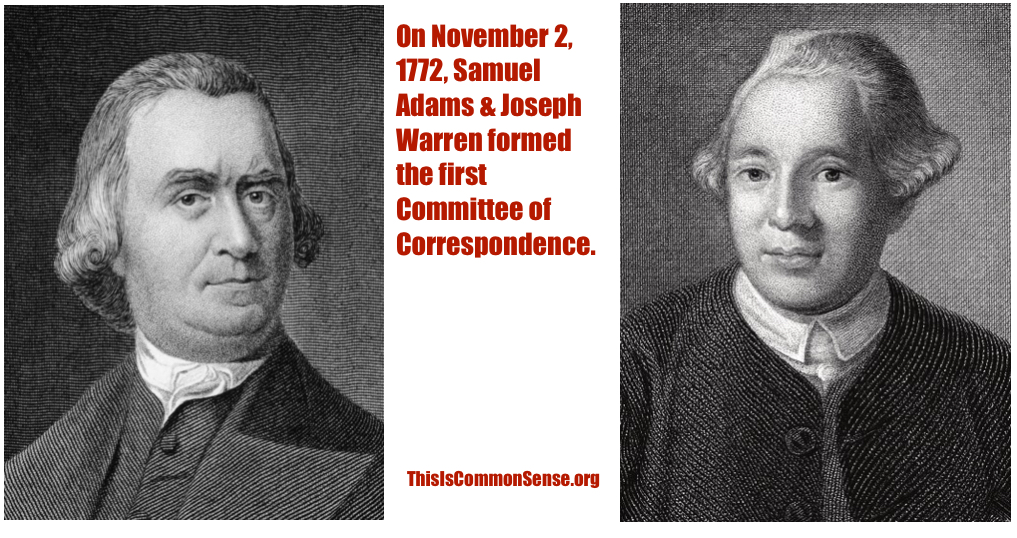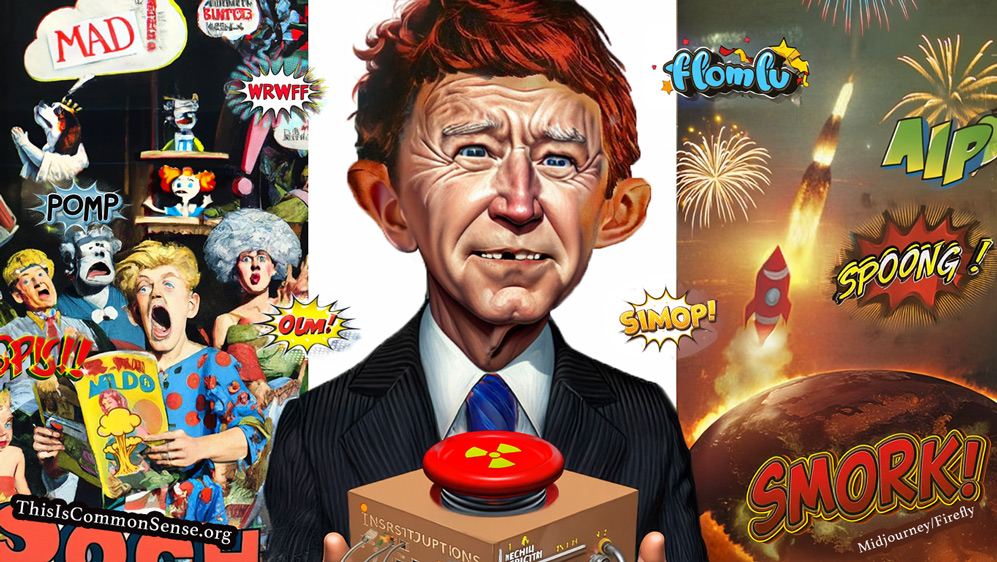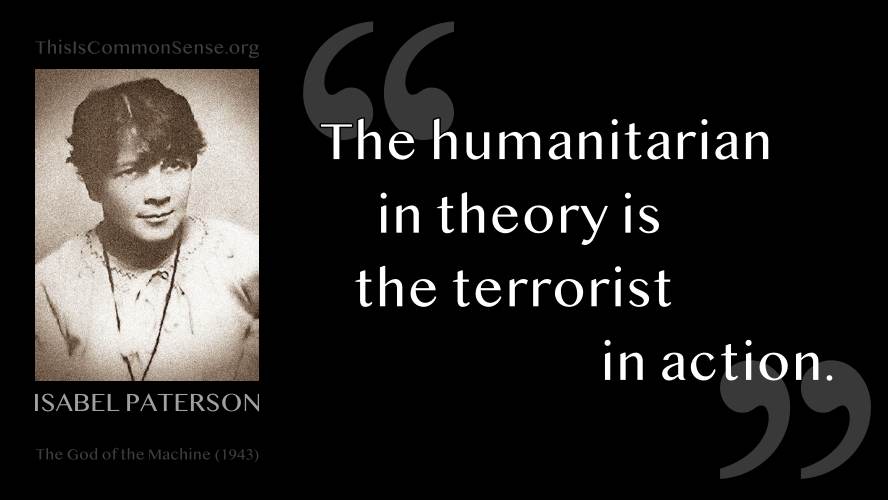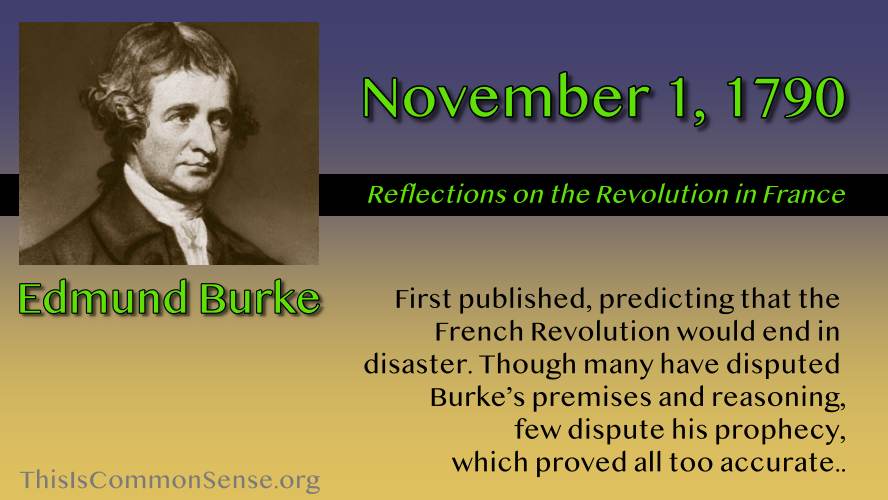On November 2, 1772, Samuel Adams and Joseph Warren formed the first Committee of Correspondence, which were instrumental in preparing the colonies from their 1776 breakaway from the British Empire of George III.
Committee of Correspondence



The outcry was understandably loud, so noisy in fact that it apparently awakened Sleepy Joe Biden. “The only garbage I see floating out there is his supporters,” declared the man who is — remember? — currently still president of the United States.
Mr. Biden has since clarified that he did not mean what he said. That’s good.
Though, White House press secretary Karine Jean-Pierre sounded a different note: “So, just to clarify, he was not calling Trump supporters garbage, which is why he put out … a statement that clarified what he meant and what he was trying to say.”
But Mr. Biden did say what he said. That’s not in dispute — it’s on videotape.
Yet … the reporting seems fuzzier now about whether President Biden uttered what our ears heard.
On NBC Nightly News, anchor Lester Holt began a segment by referring to Biden’s “apparent reference to Trump supporters as garbage.”
At Vox, Eric Levitz defends the president, arguing that he “ended up spouting a garbled stream of words,” sure, but those words “may or may not have dehumanized all Trump supporters as ‘garbage.’”
How could Levitz know for certain? He’s not an etymologist, after all.
A Washington Post analysis also found the president’s lack of noticeable cognition to absolve him of any ill intent. “Biden’s increasing tendency to stumble over his words, which marred these very comments,” the paper explains, “makes it entirely plausible that he didn’t intend to tar large numbers of Trump supporters.”
At best, we have a commander-in-chief who can no longer communicate coherently. With his finger on the nuclear button.
What — me worry?
This is Common Sense. I’m Paul Jacob.
Illustration created with Midjourney and Firefly
—
See all recent commentary
(simplified and organized)

Isabel Paterson, The God of the Machine, 1943, p. 242.
The humanitarian in theory is the terrorist in action.

On November 1, 1790, Edmund Burke published his Reflections on the Revolution in France, predicting that the French Revolution would end in disaster. Though many have disputed his premises and reasoning, few dispute his prophecy, which proved spot on.

“I’m convinced that if he’s elected, there’ll be disclosure.”
He’s not talking about about JFK assassination disclosure — not his bailiwick.
He’s talking about UFOs — or Unidentified Anomalous Phenomena, as they are now called.
Burchett thinks Trump will be our Disclosure President.
UFO enthusiasts shouldn’t get their hopes up. Trump is not the first president to have been touted as a UFO truth-teller.
Jimmy Carter infamously admitted that he saw a UFO once, and had hoped to bring transparency to the Pentagon on the subject. The lore about how this fizzled is … odd.
William Jefferson Clinton went in to office hoping to get to the bottom of two mysteries, UFOs and the JFK assassination. He admitted he got nowhere.
Hillary Clinton promised to disclose as much as she could about UFOs to the American people — her right-hand man was John Podesta, a well-known UFO disclosure advocate — just so long as the information did not jeopardize national security.
A big proviso, that.
Anyway, Hillary didn’t get elected, and the hoped-for disclosure … started anyway. A workaround spearheaded by Luis Elizondo, a Deep State man from way back, put UFOs back in the headlines in 2017, and we’ve been talking about them ever since.
But Elizondo’s intel background screams “psy-op” to some people, and it crosses most folks’ minds that the slow disclosure we’re witnessing now is not entirely on the up-and-up. Actual disclosure would lead, Burchett says, “to much gnashing of teeth.” But he believes that Trump has learned something.
“He gets it now.”
Well, we don’t. Hand over the information.
This is Common Sense. I’m Paul Jacob.
Illustration created with Midjourney and Firefly
—
See all recent commentary
(simplified and organized)

There are many difficulties impeding the rapid spread of reasonableness. One of the main difficulties is that it always takes two to make a discussion reasonable. Each of the parties must be ready to learn from the other. You cannot have a rational discussion with a man who prefers shooting you to being convinced by you.
Karl Popper, “Utopia and Violence,” address to Institut des Arts in Brussels, Belgium (1947); later published The Hibbert Journal 46 (1948), and in Conjectures and Refutations: The Growth of Scientific Knowledge (1963).